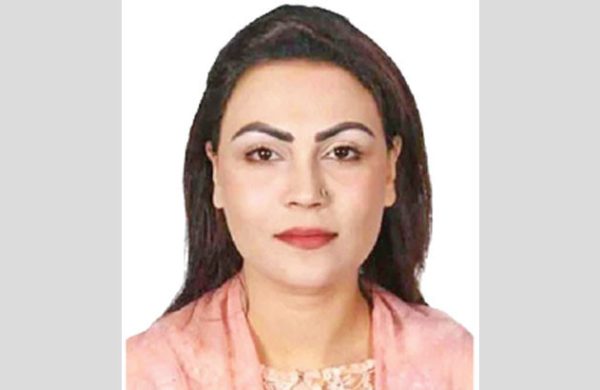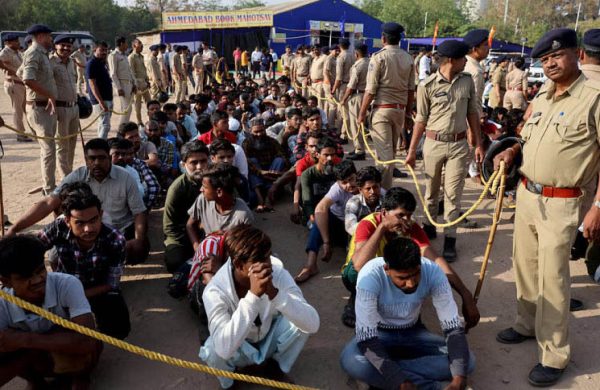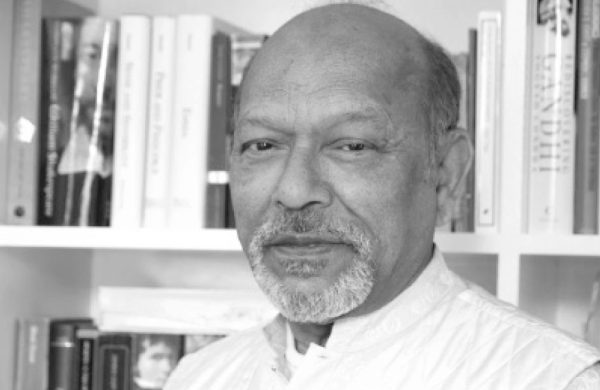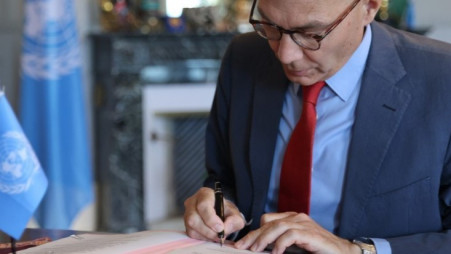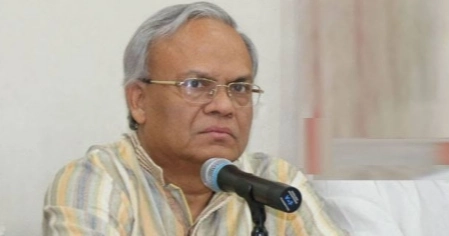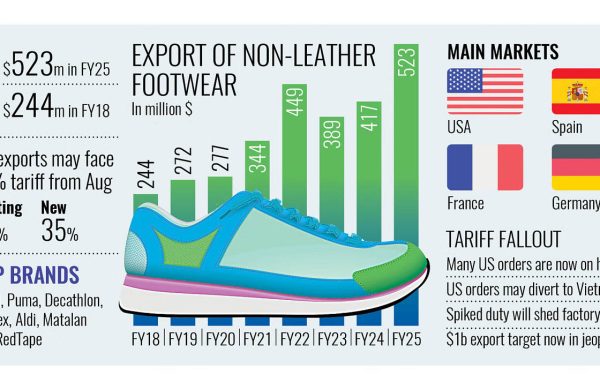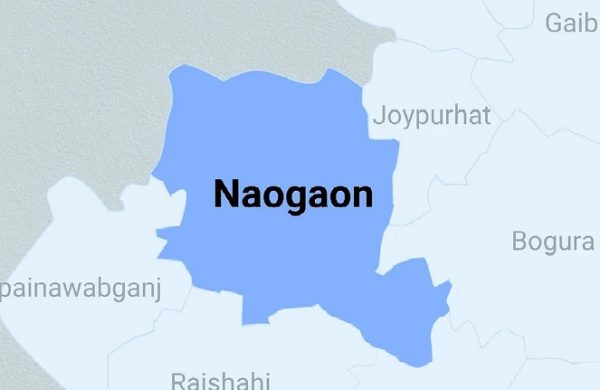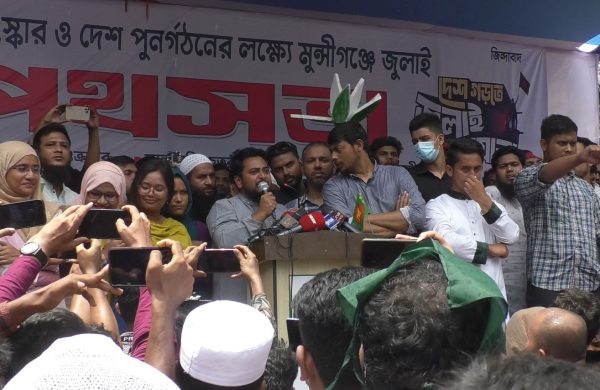Enabling private sector with due priority is crucial for economic progress
- Update Time : Tuesday, September 10, 2024
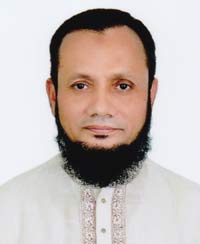
–MIR MOSHARREF HOSSAIN PAKBIR–
The private sector plays a pivotal role in the economic development of Bangladesh. Over the past few decades, Bangladesh has experienced remarkable economic growth, transforming from an agrarian-based economy to a more diversified one, with the private sector at the forefront of this transformation. Tuesday, private enterprises, both large and small, contribute significantly to the country’s GDP, job creation, and overall economic stability. Hence, it is imperative for the government to stabilize and support this sector to ensure it continues to contribute in achieving economic milestones for Bangladesh.
The interim government, led by Nobel laureate and global icon Dr. Muhammad Yunus, formed in Bangladesh in August 2024, has a unique opportunity to steer the country toward achieving the Sustainable Development Goals (SDGs) and ensuring continued economic progress. With Bangladesh at a critical point in its economic trajectory, a robust and supportive relationship between the government and private enterprises will be crucial in achieving long-term goals, including the SDGs.
As a percentage of GDP, the private sector component had increased from 16.8% from 2001-02 to 21.8 % in 2015-16 and currently is hovering around 30%. Despite the growth it is far below the need, as we need to move this number north of 40%. The export-oriented industries propelled the manufacturing sector to new heights. Bangladesh has gradually transformed itself into an assembling and manufacturing heart, seeking rapid expansion of the service sector.
The private sector contributes significantly in employment generation as more than 50% of the national workforce now is part of the private sector. If we integrate the private sector’s contribution to the agriculture sector, then this contribution in employment generation will rise up to over 80%. The most notable contribution of the private sector to employment generation can be seen in the ready-made garment (RMG) industry. The sector employs millions of workers, the majority of whom are women from rural areas, making it one of the largest sources of national employment.
Apart from the RMG sector, other industries in the private sector, such as pharmaceuticals, leather, jute, and agro-based industries, also contribute significantly to the economy as well as employment generation. The rise of small and medium-sized enterprises (SMEs) in Bangladesh has further underscored the importance of the private sector in job creation. SMEs, which constitute over 90% of all businesses in Bangladesh, are a critical engine of economic growth and employment. In recent years, the ICT (Information and Communications Technology) sector has emerged as a major area of private sector-led employment, attracting foreign investment and expanding Bangladesh’s footprint in the global digital economy.
Private sector involvement in infrastructure development has also contributed to employment. Private companies are increasingly participating in public-private partnerships (PPPs) to build roads, bridges, ports, and power plants. These infrastructure projects not only generate direct employment during the construction phase but also have long-term economic benefits by facilitating trade and commerce, which in turn creates more jobs in the long run.
The financial sector, driven largely by private banks, non-banking financial institutions, and microfinance organizations, also plays a crucial role in employment generation. The expansion of banking services and MFS across the country has created thousands of. Furthermore, microfinance institutions have not only generated employment within their organizations but have also enabled millions of small entrepreneurs to start and expand businesses, indirectly creating more jobs in various sectors.
As Bangladesh moves toward becoming a middle-income country, the private sector will play an even more crucial role in ensuring that this growth is sustainable and inclusive. The SDGs provide a blueprint for achieving a better and more sustainable future for all, addressing issues like poverty, inequality, climate change, and economic development. The interim government should work closely with private enterprises to address these issues, thereby ensuring decent work and economic growth, which aligns with SDG 8.
Agriculture remains a cornerstone of Bangladesh’s economy, and the private sector’s involvement in modernizing agricultural practices, improving supply chains, and introducing sustainable farming methods will be essential in meeting SDG 2 (Zero Hunger). The interim government can facilitate this by offering incentives for research and development in the agricultural sector, as well as encouraging public-private partnerships (PPPs) that can lead to improved food production and distribution systems.
The private sector also has a significant role to play in addressing climate change and promoting environmental sustainability, which is central to SDG 13 (Climate Action). By incentivizing green technologies and providing a clear regulatory framework, the government can encourage private investments in clean energy, which will not only contribute to environmental sustainability but also create new jobs in the growing green economy.
Another critical area where the private sector can significantly contribute is in building resilient infrastructure and promoting innovation, which aligns with SDG 9 (Industry, Innovation, and Infrastructure). Additionally, by fostering a favorable environment for startups and tech companies, the government can promote innovation that drives both economic growth and social progress, such as digital financial services that increase financial inclusion (SDG 1) and health tech solutions that improve healthcare access (SDG 3).
Moreover, achieving the SDGs requires significant financial resources, and the private sector can be a major source of funding. The interim government should prioritize mobilizing private capital for sustainable development through impact investing, corporate social responsibility (CSR) initiatives, and green finance. This alignment will not only help Bangladesh meet its SDG targets but also enhance the country’s global reputation as a responsible and forward-thinking economy.
However, the private sector’s contribution to employment generation or economic progress in Bangladesh is not without challenges. The majority of jobs created by the private sector, especially in industries like RMG, are low-skilled and low-paying. There is a need for improving labor rights, working conditions, and wages to ensure sustainable employment growth. Moreover, the private sector faces challenges such as inadequate infrastructure, bureaucratic red tape, and regulatory constraints, which can limit its potential.
To achieve economic progress, the government needs to enable the private sector to operate in a stable environment, which is highly required to attract FDI. While it is necessary to eliminate any corruption and malpractices from the sector, it is also essential that current and future entrepreneurs feel motivated to invest their money, skill and effort. Political stability, honest practices, lower government influence and availability of skilled human resource will remain critical to ensure the progressive success of this sector. Moreover, any undue harassment for the entrepreneurs needs to be eliminated, which we can hope from the interim government to a much greater extent.
Any undue threats from different regulators like NBR, Bangladesh Bank, ACC, law enforcers or even judiciary should be eliminated to comfort the entrepreneurs. There exists a huge number of educated or uneducated unemployment in today’s Bangladesh. If entrepreneurs do not invest inside the country, then rather than reduction of this huge unemployment, millions of new unemployment will take place, which will create extreme pressure not only on the economy but also on the law-and-order situation.
All sorts of extortions or violences need to stop immediately. The government should ensure an environment where the entrepreneurs will have trust to invest. Of course, those, who have utilized political influences or committed corruption should be punished but those need to be investigated properly through proper time as such investigation and action required adequate time. We know it was very difficult to run businesses without having some liaison with the government in the past. If any businessman had to have such connections for the sake of safeguarding his business, they need not be harassed. But if anyone utilized their connections in the past to take undue advantage, commit corruption or harm the economy, then they individually should be punished.
Moreover, if any business is categorized as loan defaulter for genuine reasons like; natural disaster, unfavorable economic scenario or even wrong investment or management unwillingly, then they should receive support to come out of their unfavorable conditions so that they can keep contributing to the economy. It is especially important for SMEs of our country. If the private sector entrepreneurs do not receive proper support or a favorable environment, then there will be a poor-performing economy with huge unemployment leading towards dissatisfaction of the people and hence, we will be unable to conduct and sustain the reform for which the students as well as mass people fought for.
The interim government of Bangladesh should prioritize the private sector’s role in achieving the SDGs and ensuring continued economic progress. By fostering a collaborative environment, promoting sustainable practices, and providing clear incentives and regulatory frameworks, the government can harness the full potential of private enterprises to drive the country’s development agenda forward. With Nobel Laureate and Economist Dr. Yunus as the head of the interim government along with several economists as advisors, we hope the private sector will gain its due focus and Bangladesh will keep advancing on a developing track.
The writer is Chief Editor at Mohammadi News Agency (MNA) and Editor at Kishore Bangla




